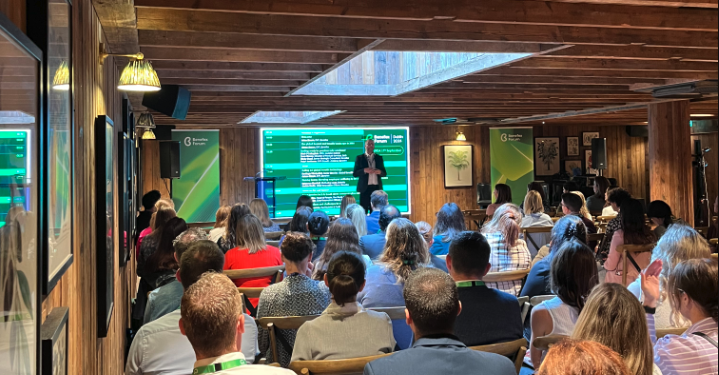
Global
Five top takeaways from the Benefex Dublin Forum 2024
25-09-2024
This year’s Benefex Dublin Forum at The Dean, brought together 100 senior HR and Reward leaders from top global companies like Conrad Dublin, Deloitte, Electronic Arts, Kara Connect, Lockton, Salesforce and The Doyle Collection. The event featured insights across a range of topics including: aligning benefits with corporate objectives, enhancing employee wellbeing, navigating pensions auto-enrolment in the Republic of Ireland, and leveraging technology for effective and engaging employee communications.
We also shared findings from our recent research report, The Expectation Exponential, which interviewed more than 2,000 employers and employees worldwide.
It was certainly an event to remember; let’s look over some of the day’s highlights…
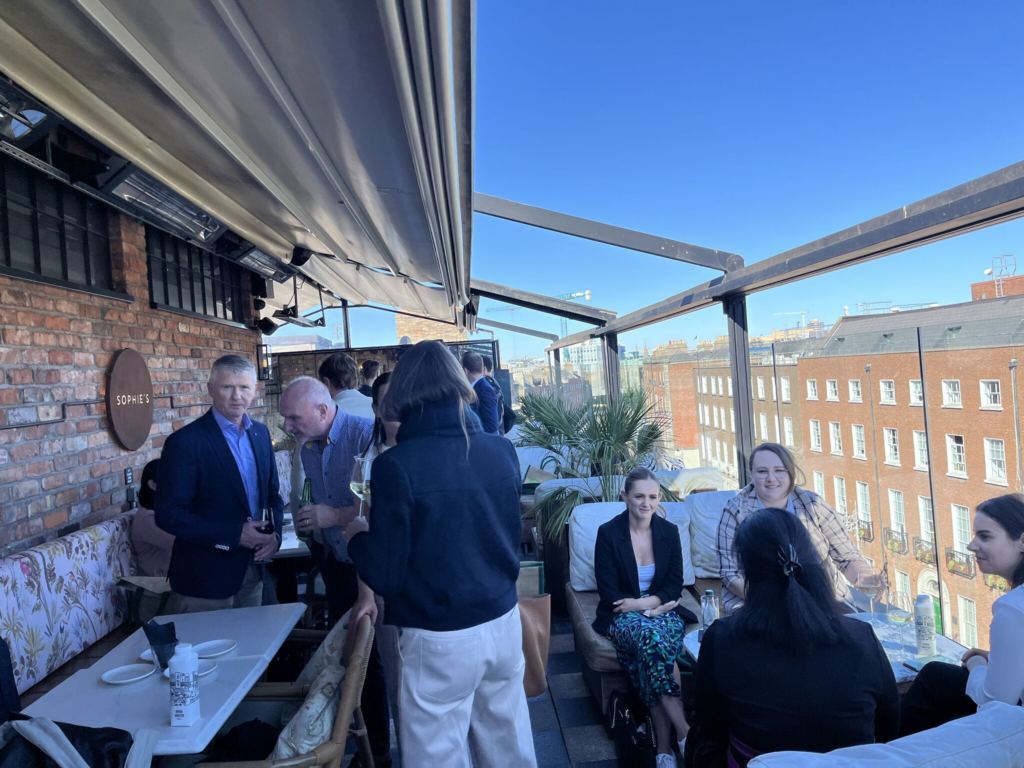
Here are our five top takeaways
1. Employee expectations risk outpacing global reward and benefits strategies – but tech can help
With 81% of employees reporting that their experience is more important than a year ago, and 59% emphasising the importance of benefits when choosing who to work for, it’s a challenge for global reward strategies to keep pace with rising employee expectations.
In our session on The global reward and benefits landscape in 2024, Adam Mason, EVP at Benefex discussed the barriers to creating a consistent global employee experience, highlighting six main challenges:
- Cultural variations
- Accessibility
- Global distribution of employees
- Complex benefits structures
- Country differences
- Disjointed delivery of benefits content
The right benefits platform can address most – or all – of these concerns.
Adam was joined in a later session by Santiago Friedenthal, Senior Director, Global Benefits Strategy & Design at Salesforce to discuss Salesforce’s experience of rolling out global benefits technology across 32 countries, with employee headcount growing from 18,000 to 35,000 in Latin America just five years. With a lean team of five people managing benefits for everyone across EMEA and LATAM, one of the main goals was to reduce high levels of manual administration and time-consuming processes, in a region that is known for its bureaucracy.
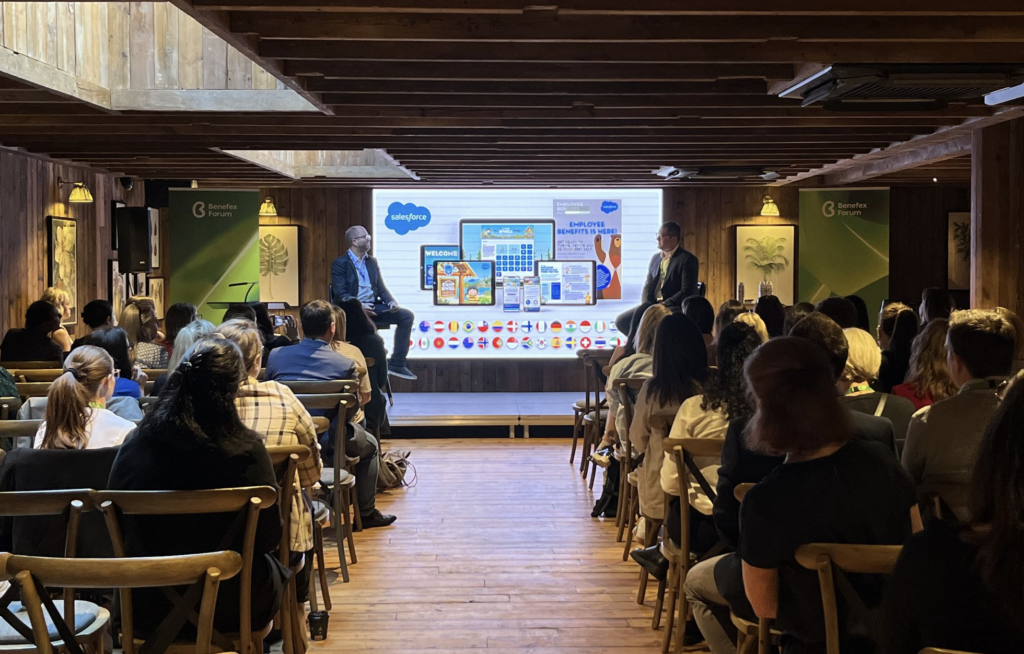
Santiago advised global HR and Reward leaders to prioritise planning, calling it the “secret sauce” to a successful benefits tech journey – this includes setting clear goals for scope, timeline, and understanding the internal resources available for this process early on.

2. Excellent communications are essential to engage deskless workers
With more than three-quarters of the global workforce in deskless roles, communication was a strong theme running through the sessions. Alan Smullen, Head of People at The Doyle Collection, shared the challenges organisations face in attracting talent, creating a competitive benefits offering compared to other industries, and effectively communicating with employees across different shift patterns.
Alan emphasised the importance of using app-based technology to reach people working across different shift patterns and locations. People want easy access to information, and they want it instantly. And employees expect workplace technology to match what they use at home, so the experience needs to be seamless.
However, Alan highlighted that levelling up your benefits communications doesn’t have to be overly complicated – it just needs to be accessible and easy to understand:
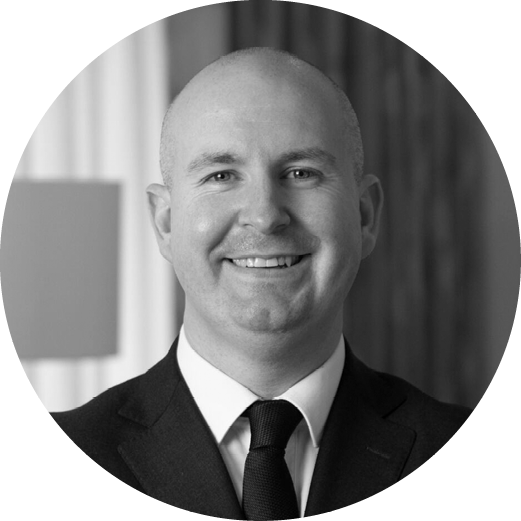
Alan shared how The Doyle Collection uses the OneHub app to deliver real-time communications to employees, improving engagement by making information easily accessible, regardless of how and where employees are working. He stressed that to be effective, communication to deskless workforces needs to be available 24/7, consistent, clear, and tailored to specific audiences. And to ensure you can continue to evolve and iterate your communications strategy, make use of data and engagement stats.

3. The time to prepare for pensions auto-enrolment in Ireland is now
Pensions remain widely overlooked by employees. However, this is starting to change thanks to the work organisations are doing to support employees’ financial wellbeing.
The upcoming Auto-Enrolment pensions scheme in Ireland is set to affect around 800,000 employees by 2025, marking the largest change to benefits structures and requirements the country has ever seen. Auto-Enrolment will mean that employees who are not currently paying into a pension, will be automatically included in the scheme, but with the option to opt out after six months.
In their session, Getting ready for pensions auto-enrolment, Niall O’Callaghan, CEO at Lockton Ireland and Sean Murray, Director of Product Services at Zellis, joined Benefexers Peter Jenkinson, EVP and Nicky Stuart, Senior Strategic Consultant, to discuss how to start preparing for Auto-Enrolment and technology’s role in supporting it.

As many organisations introduce pensions for the first time due to the new scheme, Niall O’Callaghan advised aligning pension strategy with the organisation’s culture and values, rather than just following trends and legislation. With more people to be included in pension schemes than before, he also suggested that organisations review their current workplace pension scheme and assess whether to update it to include previously excluded employees or adopt a flexible approach, especially for transient or seasonal workers. Niall stressed this isn’t a “one size fits all” situation, and taking time to choose the best plan can be the best course of action, rather than defaulting to a government-provided option.
The panel also highlighted key differences between Ireland and UK Auto-Enrolment, noting that, in Ireland, the authority decides who is enrolled, unlike in the UK where employers decide. They explained how benefits tech platforms like OneHub improve the employee experience by allowing employees to view pensions, other benefits, and total rewards in one place – helping them to understand the value of their pensions. Benefits tech also reduces manual administration, ensures compliance, delivers statutory information clearly, and supports effective communication to employees.
Nicky Stuart advised HR and Reward leaders to prepare early for Auto-Enrolment to ease the process and avoid last-minute stress, especially with payroll providers. She emphasised the importance of clear, timely communication with employees. For example, she recommended explaining Auto-Enrolment in simple terms, including costs and contribution increases.
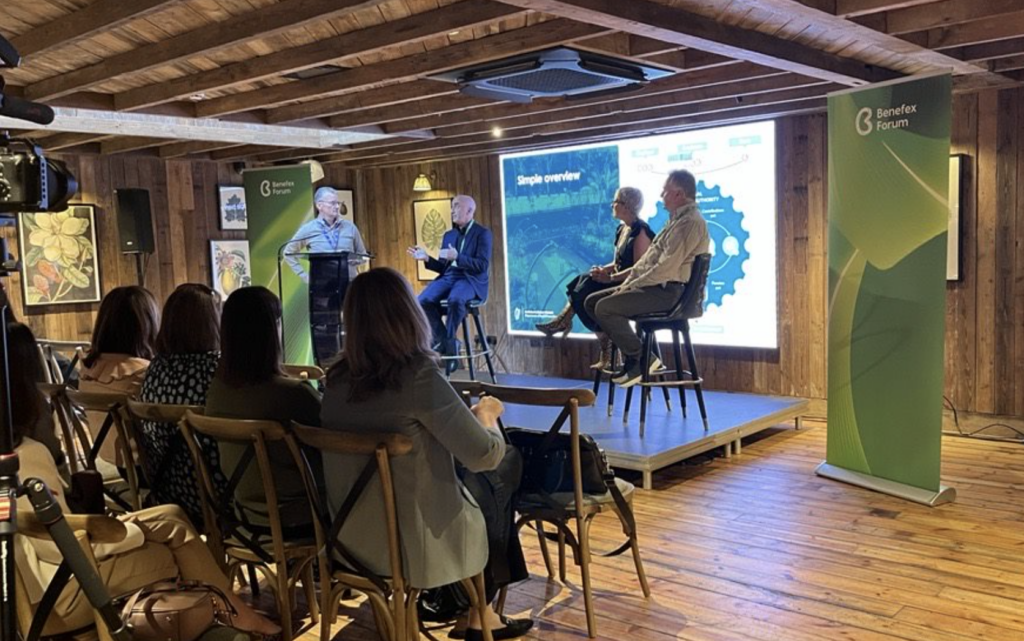
4. Wellbeing remains an area of strategic focus
Wellbeing support has become a top priority for employees. With 86% willing to leave a job that doesn’t support their wellbeing, it’s clear that wellbeing support must be central to any organisation’s people strategy.
Rebecca Marshall, Wellbeing Lead at Deloitte, shared how Deloitte’s wellbeing initiatives are deeply embedded in their organisation’s strategy. With a focus on creating a supportive environment for their 4,000+ employees across multiple locations, their programme is designed to evolve based on employee feedback.
Rebecca emphasised the importance of leadership buy-in, stressing the need to communicate wellbeing in terms that resonate with leadership teams. Providing leaders with a 360 view of the wellbeing programme can encourage them to invest. She highlighted that prioritising wellbeing drives employee performance and satisfaction. Demonstrating how wellbeing initiatives align with broader organisational goals can justify a dedicated budget. However, to see a ROI, companies must commit to supporting their people, recognising that results may not be immediate. Wellbeing is not a one size fits all approach, so it’s important to find meaningful metrics. Rebecca urged HR leaders to take wellbeing seriously, making it a core part of their value proposition rather than just a box-ticking exercise.
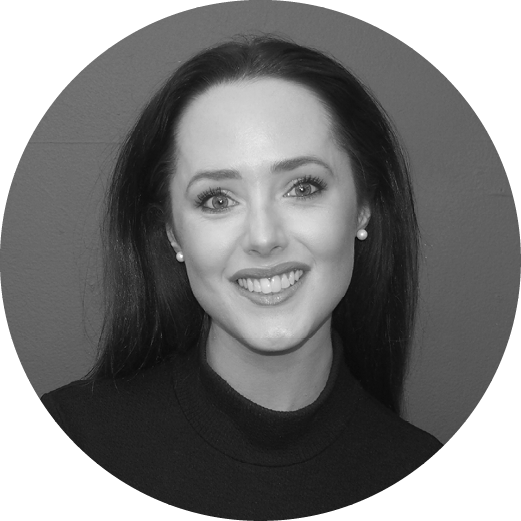
Deloitte uses OneHub Wellbeing to centralise resources, making it easier for employees to access support. Their inclusion passport, a tool that allows employees to document accommodations, such as when they need to finish work early for the school pick up, also plays a key role in fostering a culture of flexibility and support.

5. AI is transforming HR and reward functions
Our 2024 research revealed that attitudes towards the deployment of AI are shifting, with 41% of HR and Reward professionals stating they should be doing more with AI within the HR department. With understanding of and appetite for AI growing, HR and Reward professionals point to many areas where AI can enhance employee experience.
Generative AI was a hot topic at the Forum, with Simon Greenman, AI expert, exploring its impact on HR in his keynote session. Simon explained how AI is enhancing creativity, unlocking knowledge, and streamlining tasks for teams. From content creation to data analysis, AI is freeing HR professionals from administrative tasks, allowing them to focus on strategic initiatives.

Simon went on to share that this technology is poised to revolutionise worker productivity by assisting in tasks like data analysis, coding, and content creation, making it easier for workers to upskill and complete tasks more efficiently. He stressed the importance of experimenting with AI to discover its potential, while also keeping ethical, legal, and privacy considerations in mind.
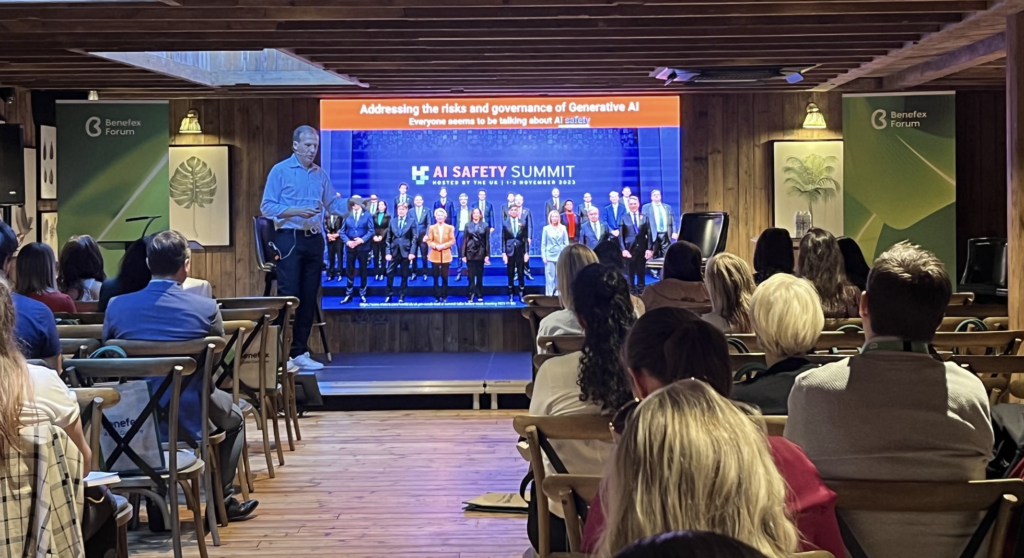
Get our 2024 research report, The Expectation Exponential
Want to learn more about these trends? Benefex’s 2024 research shares insights from more than 2,000 interviews with employers and employees across four continents to uncover what employees really want from benefits, wellbeing, technology, culture and your EVP. Plus, see what HR and Reward teams are prioritising to deliver on employee demands, and how AI is easing growing frustration in HR organisations. Get your copy here.


